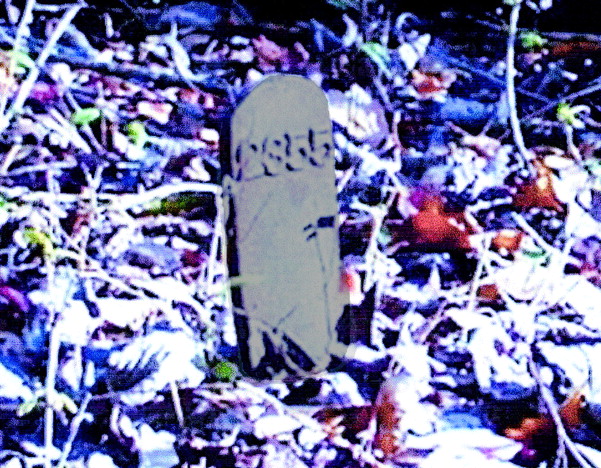In late 1998, when Patricia Deegan, Ph.D., stumbled upon an abandoned cemetery on the grounds of Danvers State Hospital in Massachusetts, she helped begin a process that has brought about healing for many former patients in state mental hospitals and a dramatic gesture of reconciliation between a state mental health official and consumers.
Deegan, who had been hospitalized in both private and public psychiatric hospitals, was already an activist on behalf of mental health consumers when she discovered the cemetery. She was appalled by the fact that graves were identified only by markers with numbers, not names, and by the failure to treat the primitive graves with dignity.
She said, “If people treat a cemetery like trash, it’s a good indication of how they feel about the people buried there and those who are still receiving services.”
At about the same time Deegan discovered the anonymous graves in Massachusetts, members of the Georgia Consumer Council, an organization that represents consumers of mental health services, toured a cemetery at Central State Hospital in Milledgeville and found an even bleaker situation. Grave markers had been removed to make it easier for hospital crews to mow the grass. Research later revealed that up to 30,000 former patients had been buried on the hospital grounds.
Organizing around the issue of cemetery restoration at public mental hospitals began almost simultaneously in Massachusetts and Georgia and spread to other parts of the country, when activists in those two states began to get publicity about the neglected cemeteries. USA Today covered the effort, as did numerous local publications like the Atlanta Journal-Constitution.
Deegan said, “Cemetery restoration gave ex-patients and other activists a chance to take the moral high ground. We were seen as people who are able to make a positive contribution. And, as the effort caught on, it became a leadership development tool, as ex-patients learned how to organize and deal with the press. Finally, it gave many people a chance to grieve over what had happened to them. Often, their memories were so painful that they had never gone back to the state hospitals in which they had been housed.”
Jeffrey Lee Geller, M.D., a Massachusetts Psychiatric Society representative to the APA Assembly and a professor of psychiatry at the University of Massachusetts Medical Center, said, “People with chronic mental illness are all too often lost and isolated in life and all too often lost and isolated in death. Restoration of these cemeteries is an important statement as to our need and responsibility to respect these individuals in their deaths, and more important, in their lives.”
The effort in Massachusetts also produced more practical outcomes. Danvers State Hospital had been closed in 1991, and state officials were debating what to do with the valuable land. Publicity about the cemetery gave ex-patients and their supporters a good negotiating tool in that discussion. The Citizen Advisory Committee recommended that in the proposed housing development, 20 percent of the units be set aside for people with mental illness and that 10 percent of the jobs involved in developing the property be similarly set aside.
In January 2000 the National Empowerment Center in Massachusetts received a grant of $58,000 from the Center for Mental Health Services (CMHS) for a study of the history of consumer/survivors in the mental health system. Deegan had developed the proposal because her work with cemeteries and other aspects of consumer history persuaded her that like other “oppressed” groups, consumers had to discover and rewrite their own history.
“The perspective of an ex-patient about a mental hospital is not that of the psychiatrist who ran the system,” she said. “Yet, our voices are rarely heard in histories of mental health.”
In Georgia, ex-patients were also achieving remarkable victories. Funds were raised for a combination restoration/commemoration project to honor the people lying in the unmarked graves. Advocates installed an intricate iron gate in front of one of the hospital’s six cemeteries and commissioned the design and casting of a bronze angel. Larry Fricks, director of the Office of Consumer Relations in the Division of Mental Health/Mental Retardation/Substance Abuse (MHMRSA) and a leader of the effort, said, “The angel represents all major religions. It will guard the cemetery to make certain nothing like the previous abandonment of the graves ever happens again.”
Public Apology
The cemetery project captured the imagination of Thomas Hester, M.D., medical director for MHMRSA. He issued a public apology on behalf of the state to mental health consumers for abuses that had occurred in Central State Hospital (
see box).
“That statement was the single most powerful gesture of reconciliation between consumers and the mental health system that has ever occurred in Georgia,” Fricks said.
William T. McLarty Jr., M.D., a Georgia Psychiatric Physicians Association representative to the APA Assembly, said, “I’ve heard only very positive comments about the cemetery project. It’s quite an honor to have a chance to remember these people as individuals.”
Deegan used grant funds from the CMHS-funded history project to help produce a manual that will assist other advocates with cemetery restoration efforts. “The Georgia Story: How to Successfully Restore a State Hospital Cemetery,” written by Fricks, gives a step-by-step account of the Massachusetts and Georgia projects and also includes information about similar activities in Arizona, Connecticut, Ohio, and South Dakota.
Future Projects
Even more projects appear likely in the future. The Board of Directors of the National Association of State Mental Health Program Directions approved a resolution in March recommending that state mental health authorities investigate the history and condition of patient cemeteries on the grounds of state psychiatric hospitals and consider activities such as a formal apology, cemetery restoration, and registration of the cemetery as a National Historic Site.
“The Georgia Story: How to Successfully Restore a State Hospital Cemetery” is available free by writing to the Office of Consumer Relations, 2 Peachtree Street, Suite 23-411, Atlanta, Ga., 30303 or by calling (404) 657-2100. Information about the CMHS-funded consumer history is available at the National Empowerment Center’s Web site at www.power2u.org/how.html. ▪

